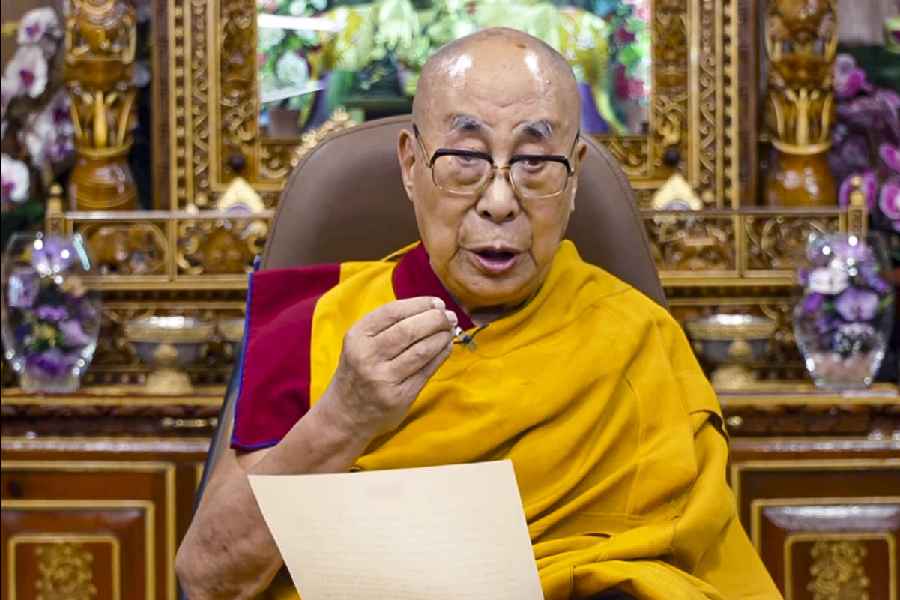The Dalai Lama’s announcement last week that a successor to his role will be chosen after his death has clarified the future of the institution that he represents and set the stage for a complex, geopolitical tussle wrapped in religion and tradition. His comments, amid celebrations of his 90th birthday, immediately set off reactions from China, then India, with the United States of America no doubt also watching closely. China views the spiritual leader of Tibetan Buddhists who fled Tibet for India in 1959 as a dangerous separatist. It has insisted that the next Dalai Lama would have to be chosen in Tibet through a Qing-era practice of drawing lots from a golden vessel. The Dalai Lama, however, has made it clear that his successor cannot be from Tibet or any Chinese territory and, so, must be from the Tibetan diaspora. All this is because of what happened 30 years ago. In 1995, when the Dalai Lama chose the Panchen Lama, the second-most important position in Tibetan Buddhism, China abducted the appointee, who was in Tibet, and he has not been heard of since then. Beijing appointed its own Panchen Lama who has since sworn allegiance to China.
For the US, China’s treatment of its Tibetan population has long served as a useful weapon to target Beijing’s human rights record. But for India, the stakes are much higher: the country is home to the world’s largest displaced Tibetan population, including the Dalai Lama and the Tibetan government-in-exile. Their presence has been a reminder of a fundamental difference between modern India and China: one nation values diversity, while the other views ethnic differences as a threat. Even as India itself has hardened its approach to refugees in recent years, it must defend the right of the Tibetan leadership to choose the Dalai Lama’s successor despite Chinese pressure. But it must do so quietly without placing itself front and centre. The ministry of external affairs’ statement in this context that New Delhi does not take any position on the issue of the Dalai Lama’s succession, while underlining that India has and will continue to uphold the freedom to practise one’s faith for all, is both nuanced and welcome.
Yet, this is also a moment for New Delhi to look in the mirror. Its refusal to sign the UN refugee convention or offer a clear path to citizenship means Tibetan refugees have long lived without the rights available to Indian nationals despite many of them being born in the country. As a result, their population in India has nearly halved since 2011, with many leaving for the West. New Delhi must ensure that both the next Dalai Lama as well as the Tibetan refugees who choose to remain in this country will always have a home in India.










